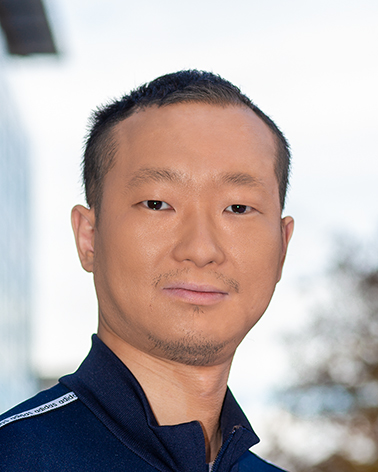Xi Ding
M.Sc.
Institute for Communications Technology
Technische Universität Braunschweig
Schleinitzstraße 22 (room 217)
38106 Braunschweig
xi.ding(at)tu-braunschweig.de
Tel.: +49 (0) 531 391 - 2487
Fax: +49 (0) 531 391 - 5192

| Period | Curriculum Vitae |
|---|---|
| since 10/2023 | Research Associate at Institute for Communications Technology |
| Academic education: | |
| 2016-2017 | Studienkolleg at Mittelhessen |
| 2017-2021 | Bachelor's degree in Industrial Engineering in Electrical Engineering at TU Braunschweig |
| 2021-2023 | Master's degree in Electrical Engineering at TU Braunschweig |
| Professional Experience: | |
| 10/2018-10/2019 | Student Assistant at Institute of Analysis and Algebra, TU Braunschweig |
| 05/2023-09/2023 | Student Assistant at Institute for Communications Technology, TU Braunschweig |
I am looking for dedicated students with a solid mathematical background who are interested in contributing to a theoretically grounded and application-oriented research project as part of their Bachelor’s or Master’s thesis.
Requirements:
High motivation
Independent work, interest in scientific research, and teamwork skills are particularly important to us.
Mathematical understanding, especially in matrix analysis
Experience with topics such as matrix decompositions (e.g., LU, QR, or SVD decompositions) is required.
Basic knowledge of optimization
Initial ideas or interest in formulating and analyzing objective functions (e.g., in the context of optimization problems) are advantageous.
Python experience
Basic programming experience with Python is required, especially in scientific computing (e.g., NumPy, SciPy).
Additional desired qualifications:
Good knowledge of linear algebra and calculus
A deeper mathematical understanding is desirable – e.g., regarding eigenvalue problems, spectral theory, etc.
Advantageous, but not strictly required:
Basic knowledge of functional analysis
Introduction to fundamental concepts of differential geometry, especially manifolds, tensor products, and tensor fields on manifolds
Topic context:
The research questions can be formulated and investigated in both finite-dimensional and infinite-dimensional spaces – depending on the interests and prior knowledge of the student.